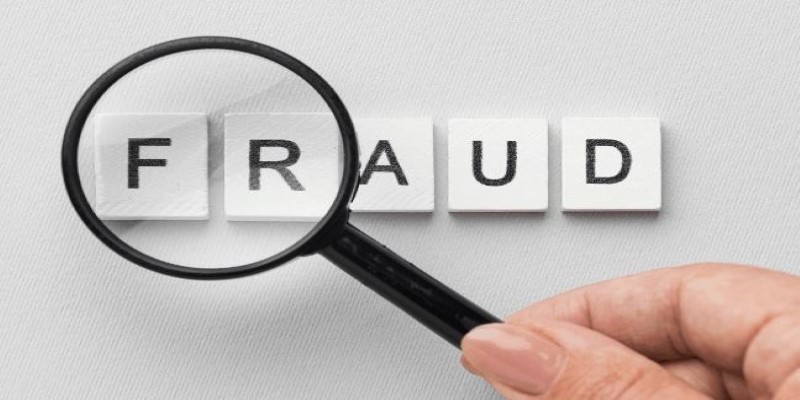Money transfers have become an essential part of modern financial life. Whether you're sending money to a family member abroad or making a business payment, the process has become increasingly simple and accessible. But with this ease comes the need for strong regulations to protect consumers from fraud, errors, and other risks.

This article delves into the key money transfer regulations in place today and explains how they safeguard transactions and ensure that money reaches its destination securely.
Understanding Money Transfer Regulations
Money transfer regulations are laws and rules established by governments and financial authorities to oversee the process of sending and receiving money. These regulations aim to protect both the sender and the recipient by ensuring that financial institutions follow strict guidelines. These guidelines cover everything from how transactions are processed to the security measures in place to protect your personal and financial information.
Regulations differ depending on the country and type of transferdomestic or international. However, the underlying principle is the same: to provide a secure environment where money can be transferred without undue risk. In recent years, the growth of online and mobile banking has led to the development of new regulations, reflecting the changing landscape of financial transactions.
How Youre Protected: Key Regulations
Several key regulations are in place to protect you during money transfers. Understanding these can give you peace of mind when sending or receiving money.
Anti-Money Laundering (AML) and Know Your Customer (KYC) Regulations
AML and KYC regulations are designed to prevent money laundering and other illegal activities by ensuring that financial institutions know who their customers are. When you initiate a money transfer, you may be required to provide identification and other personal information. This helps the institution verify your identity and monitor your transaction for suspicious activity.
These regulations are crucial for preventing fraud and ensuring that your money is not used for illicit purposes. They also protect the financial system as a whole by making it more difficult for criminals to move money across borders undetected.
Electronic Funds Transfer Act (EFTA) and Regulation E

In the United States, the Electronic Funds Transfer Act (EFTA) and Regulation E provide important protections for consumers who use electronic methods to transfer money. These regulations require financial institutions to disclose key information about your transaction, such as fees and the timing of the transfer, before you initiate it.
If something goes wronglike if your money is sent to the wrong account or if an unauthorized transfer is madeyou are entitled to certain protections under these regulations.
Consumer Financial Protection Bureau (CFPB) Regulations
The Consumer Financial Protection Bureau (CFPB) is an independent agency that oversees financial products and services, including money transfers. The CFPB enforces rules that protect consumers from unfair or deceptive practices in the financial industry.
One of the key regulations enforced by the CFPB is the Remittance Rule, which applies to international money transfers. This rule requires financial institutions to provide clear and accurate information about the cost of the transfer, the exchange rate, and the amount that will be received on the other end. It also gives you the right to cancel a transfer within 30 minutes of initiating it, providing an important safeguard if you realize there has been a mistake.
Data Protection and Privacy Regulations
When you transfer money, your personal and financial information is often shared with multiple parties, including the sending and receiving institutions. Data protection and privacy regulations, such as the General Data Protection Regulation (GDPR) in Europe, are in place to ensure that your information is handled securely and only used for legitimate purposes.
These regulations require financial institutions to implement strong security measures to protect your data from unauthorized access or breaches. They also give you rights over your data, including the right to access it, correct it, or have it deleted if it is no longer needed.
International Money Transfers: Additional Considerations
International money transfers come with additional regulations and considerations. Different countries have different laws governing money transfers, which can impact the fees, timing, and overall security of your transaction.
Exchange Rates and Fees
When sending money internationally, exchange rates and fees can significantly impact the amount that reaches the recipient. Financial institutions are required to disclose these costs upfront, but they can vary widely depending on the provider and destination country.
Some countries impose additional taxes or restrictions on incoming transfers, which can further reduce the amount received. Its essential to understand these costs and choose a money transfer service that offers competitive rates and transparent fees.
Cross-Border Regulatory Cooperation
International money transfers often involve multiple jurisdictions, each with its own set of regulations. To facilitate safe and efficient transfers, countries engage in cross-border regulatory cooperation. This cooperation includes sharing information about suspicious activities, coordinating enforcement actions, and harmonizing regulations where possible.
For example, the Financial Action Task Force (FATF) is an international body that sets standards for combating money laundering and terrorist financing. Many countries align their regulations with FATF recommendations, making it easier for financial institutions to comply with regulations in different countries.
Common Risks and How Regulations Mitigate Them
While regulations provide significant protections, money transfers still come with certain risks. Heres how the regulations help mitigate these risks:
Fraud

Fraud is one of the most significant risks associated with money transfers. Scammers may try to trick you into sending money to a fraudulent account or steal your personal information to initiate unauthorized transfers. Regulations like AML and KYC help prevent fraud by ensuring that financial institutions verify the identity of their customers and monitor transactions for suspicious activity.
Errors
Errors, such as sending money to the wrong account or entering the wrong amount, can also occur during money transfers. Regulations like the EFTA and Regulation E protect in these situations by allowing you to dispute the transaction and have it corrected by your financial institution.
Its important to act quickly if you notice an error, as there are often time limits for disputing transactions. Knowing your rights under these regulations can help ensure that errors are resolved promptly and that you dont lose money as a result.
Data Breaches
As money transfers increasingly take place online, the risk of data breaches has grown. Hackers may target financial institutions or intercept your information during the transfer process. Data protection regulations like the GDPR require institutions to implement strong security measures and report breaches promptly, reducing the risk that your personal information will be compromised.
Conclusion
Money transfer regulations play a vital role in ensuring the safety and security of your financial transactions. By understanding these regulations and the protections they offer, you can make informed decisions when sending or receiving money. Whether youre transferring funds domestically or internationally, these rules are designed to protect your money, your personal information, and your peace of mind.




